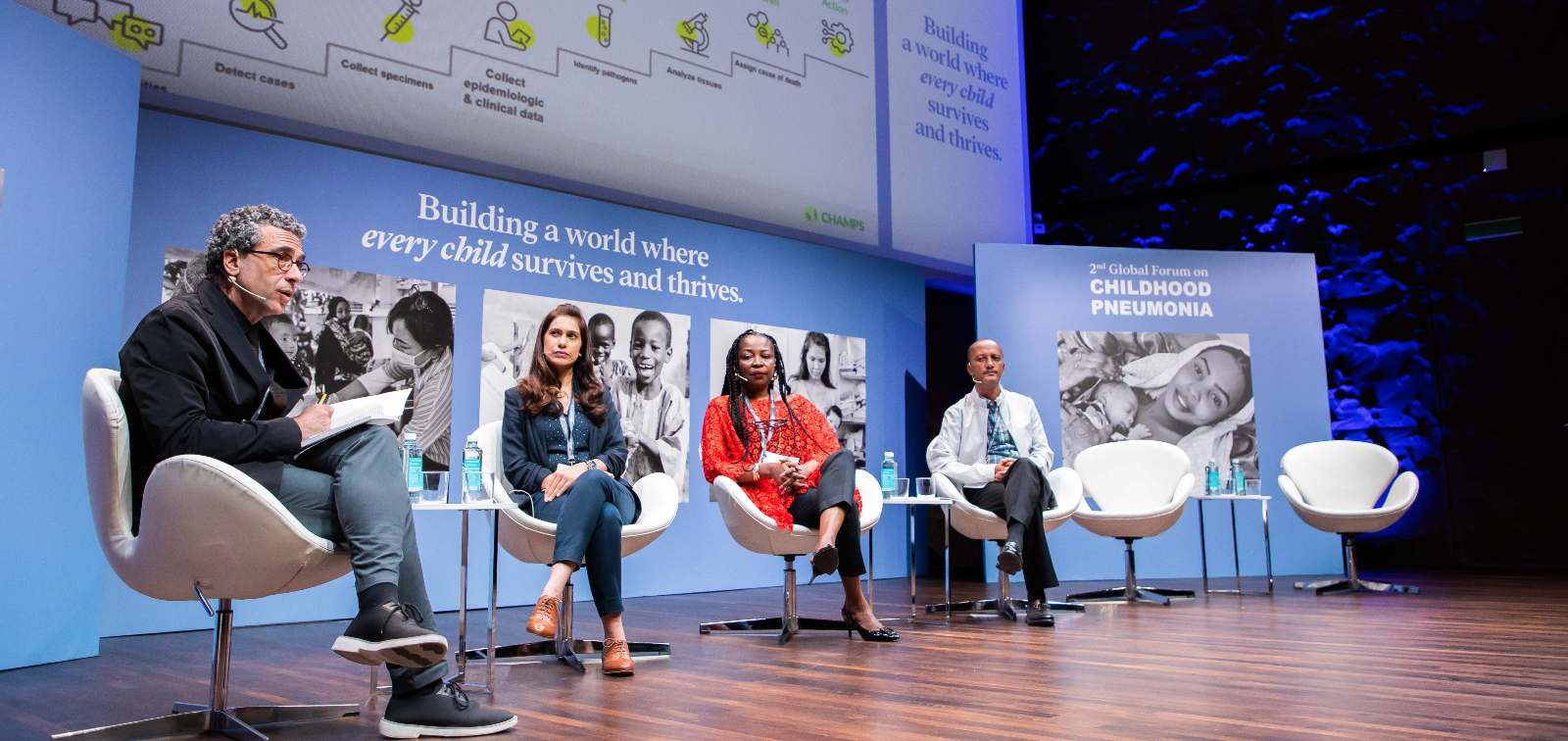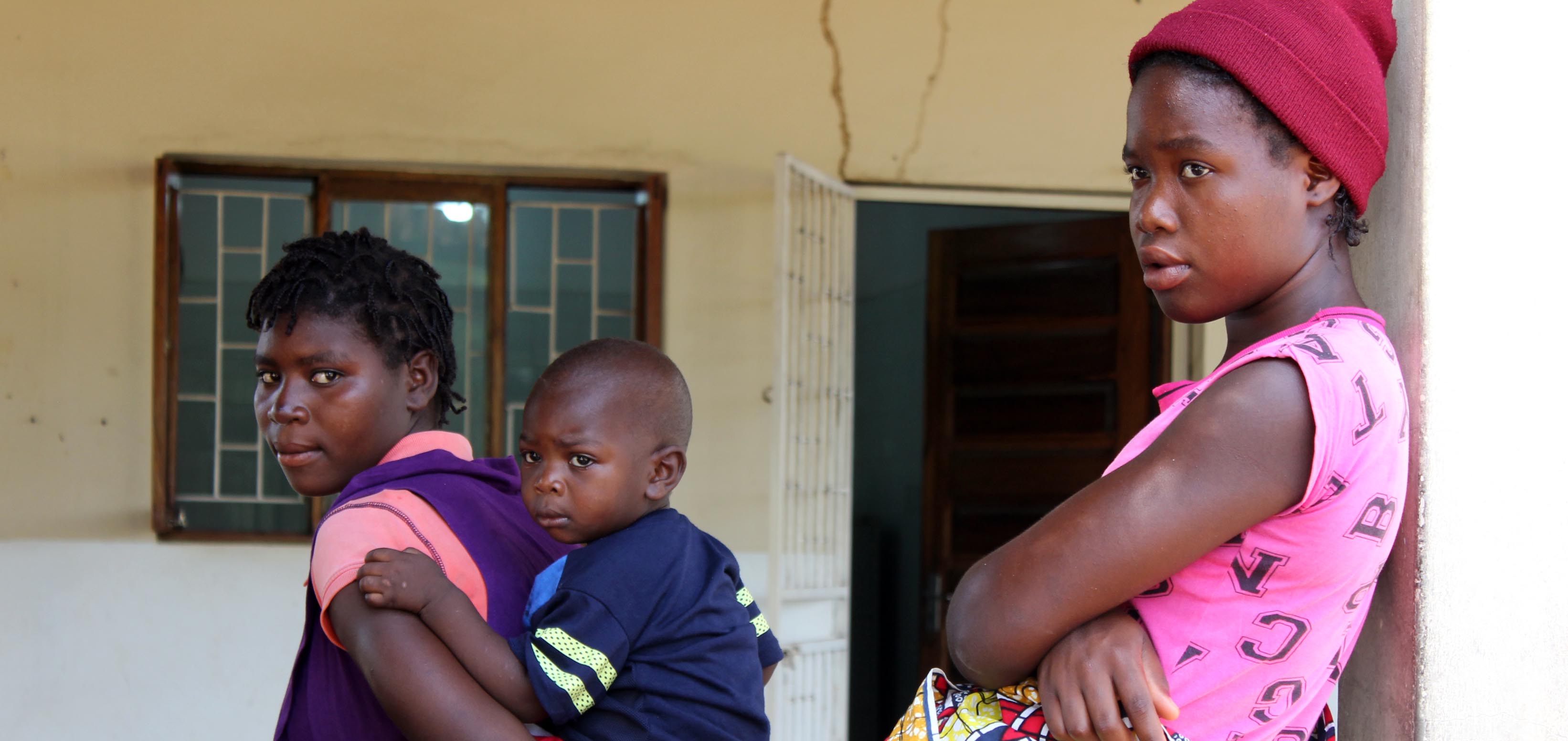Worldwide, One Child Dies of Pneumonia Every 42 Seconds
More than 300 experts, high-ranking government officials and representatives from international institutions and organisations attend the 2nd Global Forum on Childhood Pneumonia to intensify global efforts to end pneumonia deaths
27.04.2023
Pneumonia continues to be the single largest infectious cause of death in children worldwide, claiming some 700,000 lives per year, 2,000 a day, one every 42 seconds. Almost all of these deaths occur in low- and middle-income countries and almost all are easily preventable.
After the three-year pause forced by the pandemic, and hosted once more by Spain, twelve leading international organisations devoted to health and childhood will stage this Second Global Forum on Childhood Pneumonia. ”la Caixa” Foundation, the Bill & Melinda Gates Foundation, UNICEF, ISGlobal, USAID, Gavi, Every Breath Counts, Save the Children, Unitaid, PATH, the Child Health Task Force and CHAI have organised the 2nd Global Forum on Childhood Pneumonia in Madrid in order to intensify global efforts to protect, prevent, diagnose and treat childhood pneumonia and meet the goal of ending preventable deaths of newborns and children under five years of age by 2030.
The event, held on 26-27 April, brought together more than 300 people, including senior officials from 14 governments whose countries account for 60% of all child pneumonia deaths (Burkina Faso, Chad, Democratic Republic of the Congo, Ethiopia, Guinea, India, Indonesia, Mali, Mozambique, Nigeria, Peru, Sierra Leone, Somalia, South Sudan), as well as members of the Spanish government, heads of UN and multilateral development agencies, major donors, NGOs, the private sector and the scientific community.
According to Gustavo Suárez Pertierra, president of UNICEF Spain, “the tools to make it possible to prevent children dying from pneumonia already exist, but we will not achieve this if we cannot ensure that children are protected by vaccines that combat pneumonia, and have access to quick, accurate diagnosis and effective treatment with antibiotics, oxygen, and therapeutic foods to reduce malnutrition. We urgently need a global commitment to reach the most vulnerable children”.
Childhood immunisation setback
During the meeting, partiicpants analysed the new challenges resulting from the COVID-19 pandemic and discussed the actions and measures that governments need to implement in order to reduce childhood pneumonia deaths and accelerate action aimed at achieving the Sustainable Development Goal concerning child survival (SDG 3).
The pandemic has weakened health systems worldwide. Childhood vaccination has been disrupted in almost all countries, mainly due to the enormous strain on health systems, the diversion of resources from immunisation to vaccination against COVID-19, shortages of health personnel, and lockdown measures.
“We all know that there can be no progress without health. There is no economic growth without strong healthcare systems. And that is why we must address the illnesses that kill the most, and pneumonia is undoubtedly one of them,” said H.R.H. the Infanta Cristina, director of ”la Caixa” Foundation’s International Division.
It is estimated that, between 2019 and 2021, 67 million children missed routine vaccinations either partially or fully, while vaccination coverage levels fell in 112 countries according to data published in the report The State of the World’s Children 2023. More specifically, only 51% of children worldwide receive all three doses of the pneumococcal conjugate vaccine (PCV), which prevents pneumonia, among other illnesses.
Increasing vaccination coverage
The health crisis has also exacerbated existing inequalities, particularly in more marginalised communities, which lack access to vaccination, adequate water and sanitation services, and nutrition. It is therefore vital to increase vaccination coverage among children who missed vaccination and protect them from a potentially lethal disease like pneumonia.
“It is completely unacceptable that, despite having the diagnostic tools, preventive vaccines and appropriate treatments, we continue to see so many preventable deaths from pneumonia in low-income countries. It is time to redouble our efforts to ensure that pneumonia does not continue as one of the main culprits in all child mortality statistics”, says Quique Bassat, ICREA researcher at Barcelona Global Health Institute (ISGlobal).
At present, 54 countries, 80% of them in Africa, are still far from reducing child deaths to the levels required to achieve the Sustainable Development Goals (SDGs). Meeting this target includes reducing deaths from pneumonia. If these countries can increase PCV, measles and DTP vaccination coverage to above 90%, reduce child malnutrition and exposure to air pollution, and ensure that children with pneumonia are diagnosed and treated rapidly with antibiotics, oxygen and therapeutic food when needed, deaths from pneumonia could be reduced by more than 80%.
Commitment to children
The organisers and participants of this II Children's Pneumonia Forum announced at the closing of the event 36 commitments that will strengthen the prevention, diagnosis, and treatment of childhood pneumonia in more than 14 countries, including Burkina Faso, Chad, Democratic Republic of Congo, Ethiopia, Guinea, India, Indonesia, Nigeria, Mali, Mozambique, Peru, Somalia, South Sudan, and Sierra Leone.
Commitments will not only help countries regain the ground they lost during the pandemic but will also help countries introduce and scale up new vaccines, diagnostic tools (including pulse oximetry), and treatments (oxygen, antibiotics, therapeutic foods). Central to these efforts is the importance of strengthening primary health care and improving quality of care to reduce child deaths from all causes.
Within the commitments, the strong focus on equity and reaching the children most at risk of death - especially “zero-dose” children who don’t receive any vaccines and routinely have no or little access to primary health care - means that new investments will save more children’s lives. Similarly, the importance of complementary efforts and alignment with action on malaria, nutrition, and water, sanitation and hygiene, were recognized as imperative to tackling child survival and pneumonia deaths.





